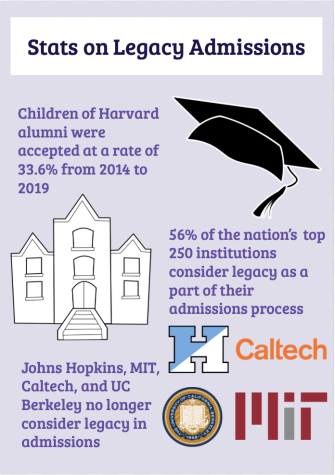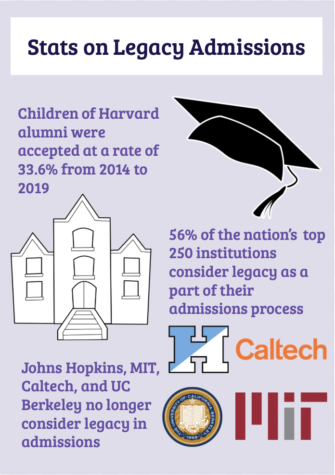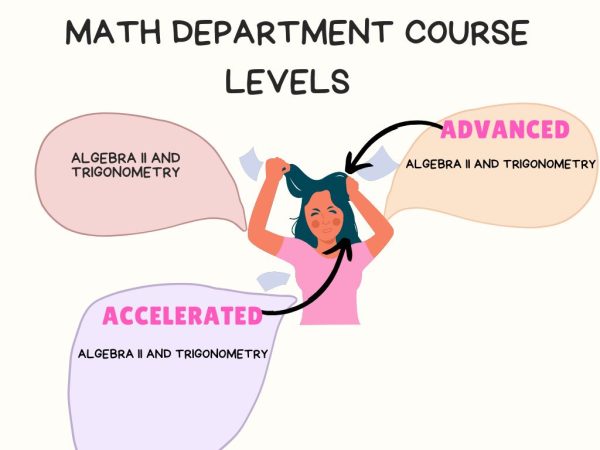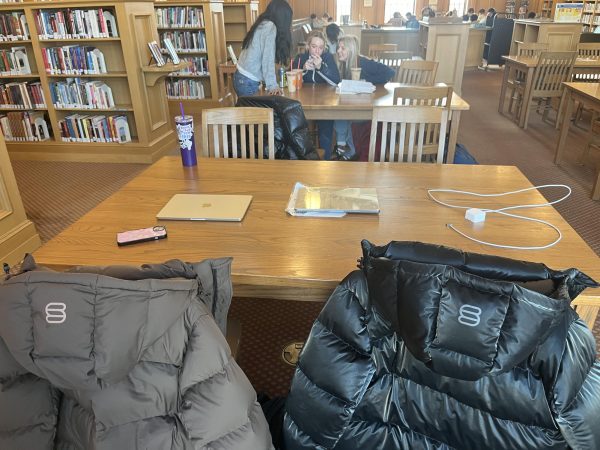How Does Legacy Affect A Student’s Chances of Admission?
“Where are you applying to college? Oh wait, where did your parents go?” This is a question that many juniors and seniors confront during their college search and application process.
With college admissions getting increasingly more selective each year, students struggle to make themselves stand out to university committees. How much does legacy really change a student’s chances of getting into a school?

Legacy increases chances of admission to elite colleges by up to eight times. For example, the children of Harvard alumni were accepted at a rate of 33.6% from 2014 to 2019.
“I think [legacy is] traditional, outdated, and unfair in the modern world where 100,000+ students are competing for a spot in an Ivy League school,” said senior Tibet Yakut.
Currently, 56% of the nation’s top 250 institutions consider legacy as a part of their admissions process. Additionally, this is even more prevalent in private colleges and universities in the northeast.
So why do these elite colleges prefer legacy students? There are a variety of reasons. For one, colleges feel that if children of alumni are admitted, they are more likely to attend the school due to a previous emotional or familial connection to the institution. Alumni children matriculate at more consistent rates, which provides the school with more security. Additionally, these families also provide donations to support the school’s programs. If they admit more children from the same family the multi-generational ties will encourage more consistent donations.
Most of the reasons to admit legacy students are motivated by money and donations. These additional funds allow the schools to ensure that the college can afford its expenses and continue to operate. Other donations go towards scholarships and helping current students. But at what cost do colleges accept these generous “gifts”? At the cost of taking a spot away from a sometimes more capable student whose parents did not have the same opportunities.
Another notable aspect of legacy admissions is that these students are seldom from minority groups, which shows the undertones of discrimination in the process.
Sophomore Eliza Podvalny said, “[legacy] has no correlation to the student and who they are as a person and it’s really unfair to those who have immigrant parents or come from underrepresented backgrounds”. She also added that these parents “may have not had the chance to get an education”.
Over the past years, several elite institutions have moved away from considering legacy during the admissions process. Some examples include Johns Hopkins, MIT, CalTech, and UC Berkeley. Assistant Director of Admissions at MIT, Chris Peterson said, “Preferring a student whose parents attended a college not only takes away a spot from an equal or better student, it takes away a spot from an equal or better student who overcame more by not having the advantages accrued by prior generations” (CNBC).









